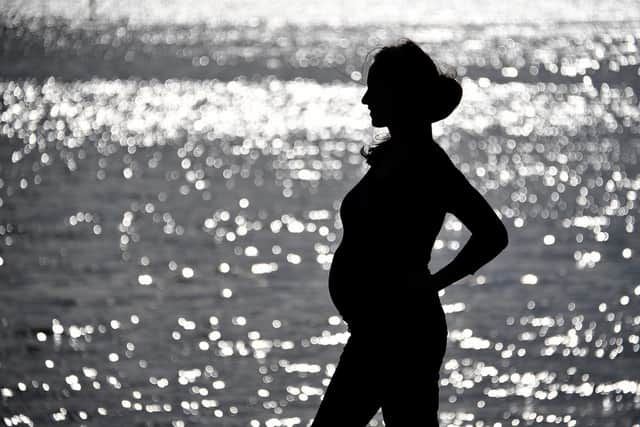'Older mothers at risk' as breast growth in pregnancy can increase cancer risk
and live on Freeview channel 276
Rapid breast growth during the early stages of pregnancy place older mothers at greater risk of breast cancer.
Scientists were previously unsure what was driving the effect, but now a team at Imperial College has found that when breast cells multiply rapidly to allow breastfeeding during pregnancy it can lead to a runaway effect, creating a cancerous tumour.
Advertisement
Hide AdAdvertisement
Hide Ad

Older mothers therefore suffer the double impact of having more mutated cells to begin with, as breast tissues mutate over time, which are then multiplied again in pregnancy.
Dr Biancastella Cereser, the lead author of the study, from Imperial’s surgery and cancer department, said: “In recent decades, women have begun having children later because of societal changes and personal preferences.
“Previous research has found that this is associated with a heightened breast cancer risk.
“We found that the human breast, like other organs, accumulates mutations with age – but also that pregnancy has an additional effect meaning that older first-time mothers might have a higher chance of developing harmful changes in their breast cells compared to other women.”
Advertisement
Hide AdAdvertisement
Hide AdThe chance of developing the cancer rises for mothers who give birth over the age of 24, with a 5% increase in risk for every five years over the age of 24 and around one in seven women will develop breast cancer during their lifetime with the risk rising with age.
The researchers looked at the genetic code of healthy non-cancerous breast cells from 29 women who had given birth at different ages or who had no children.
They found that healthy breast tissue gets around 15 new mutations a year, the majority of which had no negative effect at all and were not in genes known to be associated with cancer.
However, there was more evidence of clonal patches – areas where mutations had spread to daughter cells to create large mutated areas.
Advertisement
Hide AdAdvertisement
Hide AdThe team believes that, during pregnancy, those areas may replicate and expand as breast tissue grows, raising the risk of cancer.
Other issues such as the impact of breastfeeding and the age at first period and menopause, all of which are known to play a role in cancer risk.
Senior author Justin Stebbing, Professor of Biomedical Sciences at Anglia Ruskin University, added: “Just like wrinkles appear on our skin as we get older, changes can also happen in the DNA of breast cells over time. Our study shows that pregnancy adds an extra element to these changes.
“This new knowledge can empower women to make informed choices about their reproductive health and to take steps to detect breast cancer early.”
Advertisement
Hide AdAdvertisement
Hide AdDr Cereser added: “Nobody has looked at the entire genome of the healthy breast before, let alone differentiating into groups of women who had given birth at different ages, as well as women who did not have any children.
“I hope this study could be used as a resource for researchers looking at the genetics of healthy tissue in general, aside from the breast, and of course other breast cancer researchers, who could use the data set of mutations we found as a ‘reference’.”
The research was published in the journal Nature Communications.
Comment Guidelines
National World encourages reader discussion on our stories. User feedback, insights and back-and-forth exchanges add a rich layer of context to reporting. Please review our Community Guidelines before commenting.
